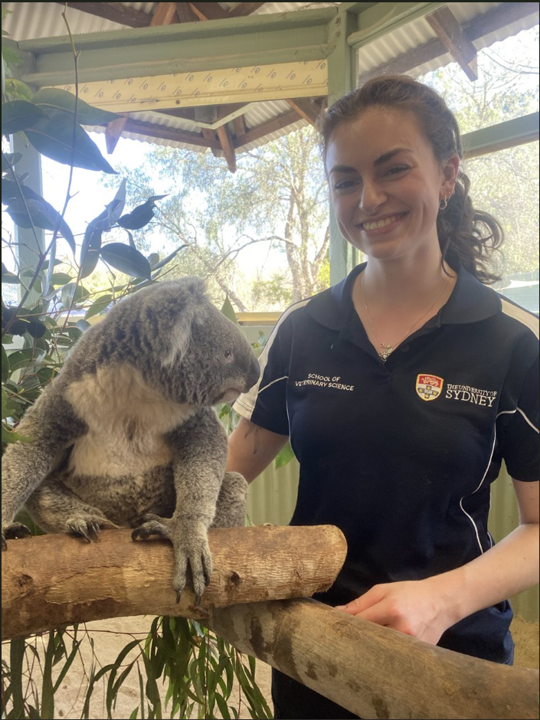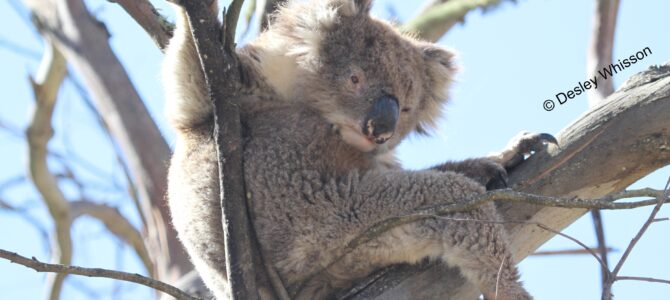by Lily Munro
Koalas are one of Australia’s most unique species. Their cute and cuddly appearance has captured the hearts of many tourists and locals alike. Since being listed as Endangered in Queensland, New South Wales and the Australian Capital Territory in 2022, they have also become one of the most well-funded species, with government and conservation organisations scrambling to save them. But what is the value of koalas within the Australian landscape beyond them being living proof that not all creatures in this country are dangerous or strange? Why should we care about koalas at all?
Koalas have an intriguing survival strategy. They sleep for 18-20 hours per day, they almost exclusively eat Eucalyptus, and they can only produce one joey, once a year on average. To me, this does not seem like a very strong template for survival. Additionally, human activity is increasing the pressure on koalas. Historically, koalas were hunted extensively for their fur in the late 19th and early 20th centuries. Presently, koala habitats are being destroyed to clear land for housing and to feed our ever increasing population, as well as being impacted by climate change with the increasing frequency of natural disasters like the 2019-2020 bushfires. These factors combined mean that many koala populations are under pressure, with their habitats and food sources shrinking.
Additionally, genetic diversity of koalas is quite varied across their range. Lower genetic diversity is seen in koalas in the southern part of their range, and we have also observed that individual koalas with lower genetic diversity, are more likely to be impacted by Chlamydia and Koala RetroVirus (KoRV). Koalas are an ancient species, and are not thriving in a modern environment, yet Australians truly care for them, and are continuously funding measures to improve their survival. Why?
The conservation of koalas also helps to improve the outcomes of many other flora and fauna species. Conserving their habitat helps to save the many tree species, and also the homes of other native animals. Koala conservation can also bring attention to other native species that are in need of assistance, but are lesser known, such as greater gliders and regent honeywaters. Through their international platform, koalas bring attention to all the weird and wonderful creatures found in Australia, and emphasise the need for their conservation.
In my Honours year, I am focusing on the reproductive genetics of koalas. I am looking at male reproductive genes that relate to testes development and function, spermatogenesis and sperm quality. I am lucky enough to be undertaking Honours at a time when genomics research is more accessible than ever before. Using previous research from the lab as a springboard (namely the Koala Genome Survey), I will (hopefully!) be able to provide some new evidence as to why koala populations breed differently, as has been observed across their range. Koalas are kooky, but iconic and I believe the focus on their conservation is warranted.
Author

Lily Munro (Honours Student) is characterising the reproductive genes of koalas. She will also be comparing the diversity of these genes at a population level across the species range. She aims to find some correlation between the known breeding success rates of koalas, and the genetic differences between populations and to contribute to the species’ ongoing conservation programs.
